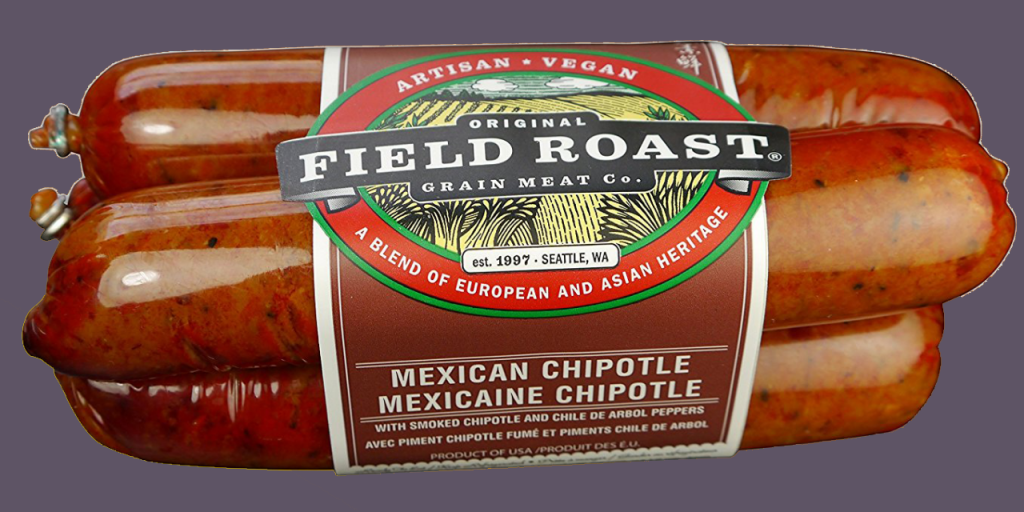Just a day after it was announced that Maple Leaf Foods, Canada’s largest packaged meat company, will acquire vegan meat brand Field Roast for $120 million, the Seattle-based grain meat producer says customers — and employees — have its word that Field Roast will remain a vegan and mission-driven company.
“Dear Field Roast Friends, I met today with many of our vegan employees to hear and discuss concerns about becoming part of a larger animal meat company,” Field Roast founder David Lee said in a statement on the company’s Instagram page. “We drafted this document, which has been reviewed and approved by Maple Leaf Foods as our Vegan Policy going forward, once the merger is complete. I hope this will allay some of your concerns.”
The company outlines in a nine-point document its commitment that not only will all existing and future Field Roast products continue to be vegan, but they will only ever be produced in a vegan facility where no animal products will even be allowed in the staff breakroom (with minor reheat exceptions). The company will maintain its Vegan Society certification status; only sponsor vegan events; ensure all sampling products (condiments, etc) are vegan; maintain a vegan social media presence; source only vegan office materials and supplies; and continue to support causes that align with Field Roast’s vegan mission.
The document, which Field Roast is calling the “Vegan Policy Affirmation” aims to bring relief to doubtful customers, many of whom took to social after news of the sale to bash the merger and question the integrity of Field Roast’s future, even after the Vegan Policy Affirmation was posted. But companies like southern California’s Beyond Meat, which in 2016 sold a five percent stake of its business to Tyson Foods, the largest meat producer in the U.S., say moves like these are incredibly brave for the meat industry and signal an inevitable victory for the vegan movement. The meat industry is not buying in to dilute or corrupt companies like Field Roast or Beyond Meat. Quite the opposite; they’re buying in to update their portfolios, stay relevant, and possibly even move away from animal agriculture entirely.

The fear and progress-bashing of these vegan companies who work with the meat industry “is exactly the wrong reaction,” Good Food executive director Bruce Friedrich wrote in the Wall Street Journal in 2016 shortly after the backlash Beyond Meat experienced when it announced Tyson had bought into the business.
“This is an immense investment opportunity,” asserted Friedrich. “Bill Gates has called plant-based meat ‘the future of food.'[…]Eric Schmidt, the former CEO of Google, told the Milken Global Summit that alternative proteins may well save the planet from climate change. But it was anybody’s guess whether the meat industry would see this as opportunity or a threat.”
Friedrich notes these meat companies aren’t investing in plant-based businesses out of pity or kindness, “it wants to reap the profits as sales of alternative meats grow,” he says, pointing to the opportunities these companies have to change our food system forever as alternative proteins are expected to make up one-third of the meat market by 2054, perhaps more.
“I hope with all my heart that others will follow, creating a seamless shift away from animal meat toward healthier and more humane options.”


